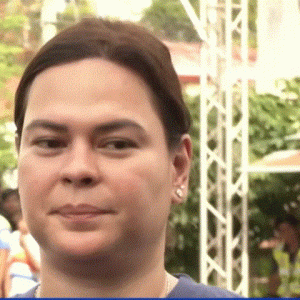
Dear PAO,
I am a refugee from a Middle East country constantly ravaged by war. I have been living in the Philippines for 12 years, and it is my intention to acquire Philippine citizenship. I have been inquiring about the naturalization process, and I was told that I need to submit a declaration under oath of my intention to acquire Philippine citizenship at least one year before the filing of the appropriate petition in court. Is this true? If yes, what is the effect of non-compliance?
Rabosini
Dear Rabosini,
The process of naturalization to acquire Philippine citizenship is governed by the provisions of Commonwealth Act 473 or Revised Naturalization Law, as amended by Republic Act (RA) 530. Your concern is specifically governed by Section 5 of said law which provides that:
“One year prior to the filing of his petition for admission to Philippine citizenship, the applicant for Philippine citizenship shall file with the Bureau of Justice a declaration under oath that it is bona fide his intention to become a citizen of the Philippines. Such declaration shall set forth name, age, occupation, personal description, place of birth, last foreign residence and allegiance, the date of arrival, the name of the vessel or aircraft, if any, in which he came to the Philippines, and the place of residence in the Philippines at the time of making the declaration. No declaration shall be valid until lawful entry for permanent residence has been established and a certificate showing the date, place, and manner of his arrival has been issued. The declarant must also state that he has enrolled his minor children, if any, in any of the public schools or private schools recognized by the Office of Private Education of the Philippines, where Philippine history, government, and civics are taught or prescribed as part of the school curriculum, during the entire period of the residence in the Philippines required of him prior to the hearing of his petition for naturalization as Philippine citizen. Each declarant must furnish two photographs of himself.”
It is important to emphasize that the one-year period is mandatory. The rationale behind was fully explained in the case of Mohamed v. Republic of the Philippines, GR 220674, Dec. 2, 2021, where the Supreme Court, speaking through Associate Justice Mario Lopez, stated that:
“Section 5 of C.A. No. 473 strictly enjoins the applicant to file with the OSG a declaration under oath that it is his or her bona fide intention to become a citizen of the Philippines one year prior to the filing of the petition for admission to Philippine citizenship. As aptly discussed in Republic v. Li Ching Chung, the purpose of the one-year period is to give the OSG sufficient time to investigate the qualifications of the applicant and adduce evidence to protect the interest of the State, to wit:
“[T]he period of one year required therein is the time fixed for the State to make inquiries as to the qualifications of the applicant. If this period of time is not given to it, the State will have no sufficient opportunity to investigate the qualifications of the applicants and gather evidence thereon. An applicant may then impose upon the courts, as the State would have no opportunity to gather evidence that it may present to contradict whatever evidence that the applicant may adduce on behalf of his petition. The period is designed to give the government ample time to screen and examine the qualifications of an applicant and to measure the latter’s good intention and sincerity of purpose. Stated otherwise, the waiting period will unmask the true intentions of those who seek Philippine citizenship for selfish reasons alone, such as, but not limited to, those who are merely interested in protecting their wealth, as distinguished from those who have truly come to love the Philippines and its culture and who wish to become genuine partners in nation building. (Emphases supplied and citations omitted.)
“The filing of such declaration of intention, upon faithful compliance with the statutory requirements, is mandatory and an absolute prerequisite to naturalization. ‘The language of the law on the matter being express and explicit, it is beyond the province of the courts to take into account questions of expediency, good faith and other similar reasons in the construction of its provisions.’ Hence, the premature filing of the petition for naturalization before the expiration of the one-year period is fatal.”
Applying this decision to your situation, the purpose of the one-year period as provided under Section 5 of Commonwealth Act 473, as amended, is for the State to make inquiries as to your qualification and for them to have sufficient opportunity to gather evidence thereon. This waiting period is also intended to unmask the true intention of those applying for citizenship. Finally, the said one-year period is mandatory and an absolute prerequisite to naturalization, thus, non-compliance will be fatal to your application. It is crucial that you comply with the requirements as provided by law.
We hope that we were able to answer your queries. Please be reminded that this advice is based solely on the facts you have narrated and our appreciation of the same. Our opinion may vary when other facts are changed or elaborated.
Editor’s note: Dear PAO is a daily column of the Public Attorney’s Office. Questions for Chief Acosta may be sent to [email protected]







